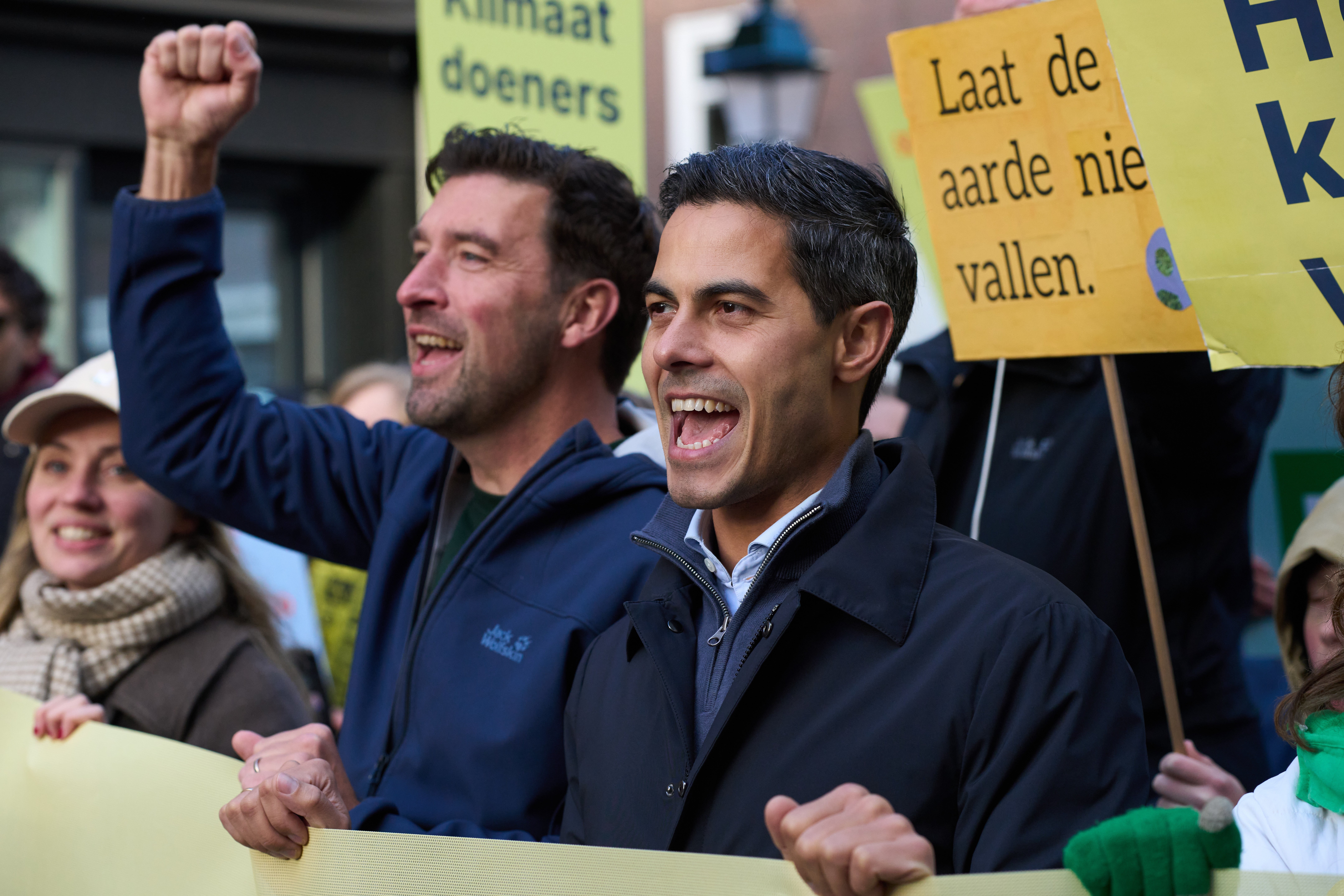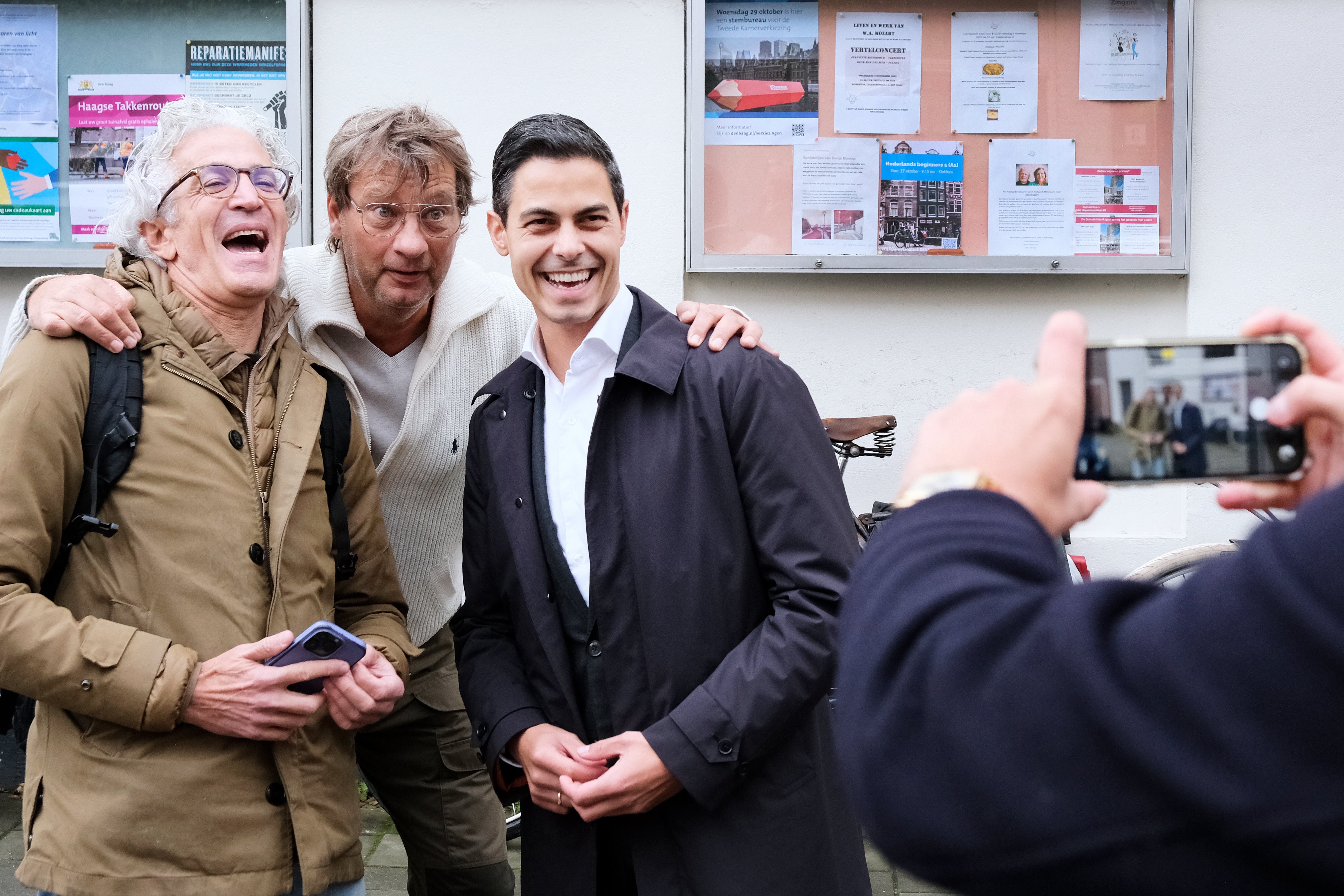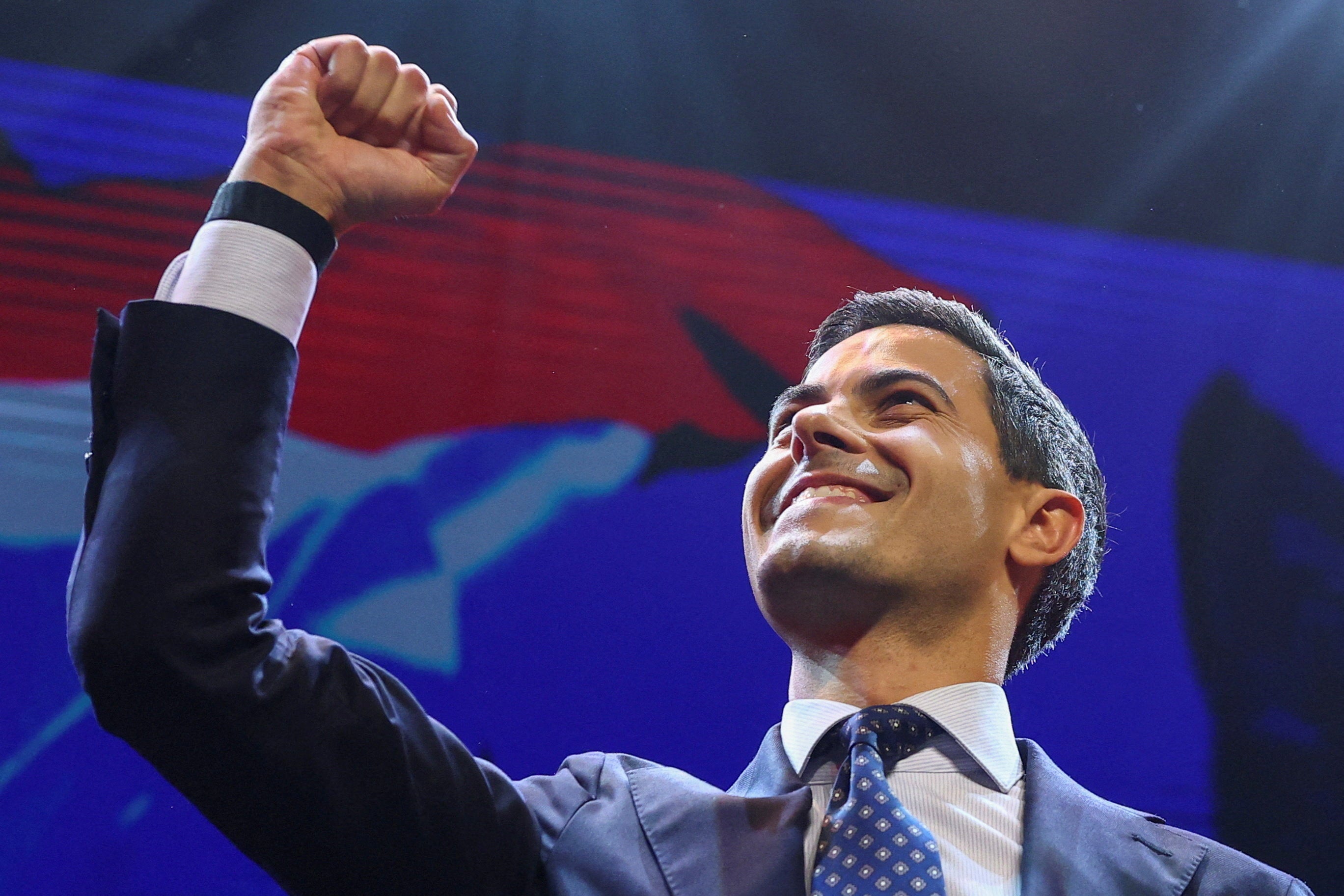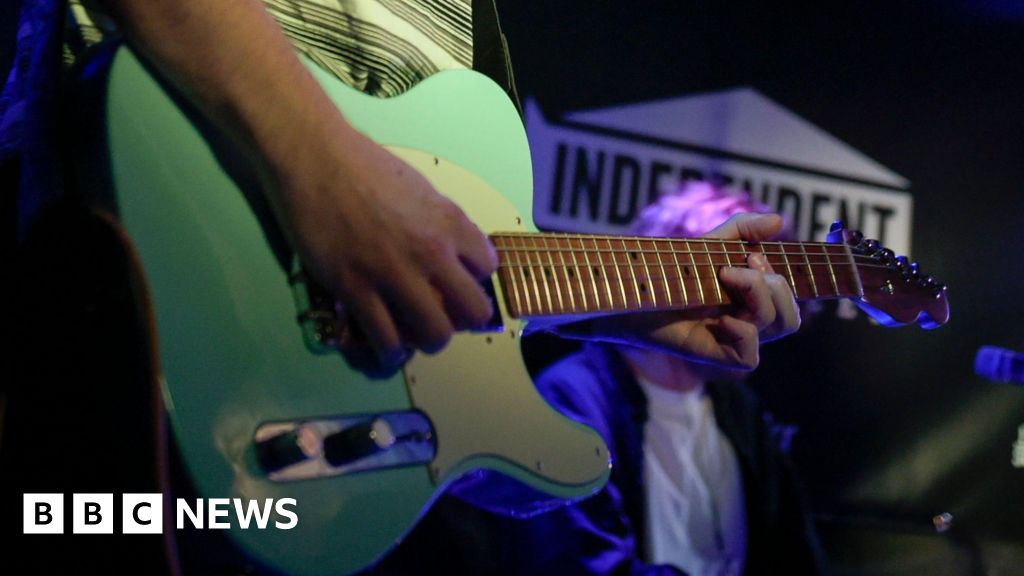Rob Jetten, the 38-year-old leader of the Dutch centrist party D66, is poised to become the Netherlands’ youngest and first openly gay prime minister after his party was declared the narrow winner of the Dutch general election.
With almost all votes counted, D66’s lead is now unassailable, placing it ahead of the far-right Freedom Party (PVV) led by Geert Wilders, according to ANP, which compiles results from all municipalities.
Mr Jetten’s campaign saw a significant image transformation, moving from a “nagging climate minister” to an optimistic “yes, we can” politician.
The shift was bolstered by refined messaging and increased advertising, allowing D66 to broaden its appeal beyond core social liberal themes like climate change and education.
Crucially, he strategically engaged with divisive issues like immigration and the housing crisis, successfully attracting some voters who had previously favoured right-wing parties.
He directly challenged Mr Wilders, accusing him of “hijacking” Dutch identity and lambasting him for only standing up for women’s and LGBTQ rights to cast Muslims in a poor light.
Sticking to his upbeat approach, Mr Jetten posted a message on Instagram on election morning, stating it was “time for positive forces to win”.
He added: “Together we can beat Wilders, I am ready.” With his party projected to secure the most votes, Mr Jetten is now set to lead coalition negotiations, paving his way to the premiership.

“Rob is without a doubt one of the most talented politicians the Netherlands has ever had,” said Kajsa Ollongren, a D66 party member who served as defence minister in government with Mr Jetten.
“I’m sure that if we win as the exit polls say we do, he’ll want to unite the country and turn around the negative spiral that Wilders has pushed the country in.”
Mr Jetten would be the Netherlands’ first openly gay leader, although his sexuality has not played an important part in the campaign.
The Netherlands is known for its strong protections of LGBT+ rights and his party was in power when the Netherlands became the first country to legalise same-sex marriage 25 years ago.
His “bromance” with another Dutch politician went viral on TikTok in 2021.
That social media trend led Mr Jetten to meet his fiancé, Argentinian international hockey player Nicolas Keenan, who he is due to marry next August. Mr Jetten says they met at a supermarket and Keenan recognised him from the TikTok video compilations.
Mr Jetten stood out in the election with a more conciliatory message of political rivals working together on divisive issues.

He stressed that parties should cooperate and slammed Mr Wilders for negativity and scaremongering.
To combat illegal immigration and discourage dangerous migrant journeys, Mr Jetten has proposed asylum applications to the Netherlands be submitted from outside the EU, alongside increased spending on integration programmes.
Government policy would be aimed at ensuring “people that really are fleeing from war and violence are received in a decent way, learn the language and can participate (in society) and that the rotten apples are pulled out of the system and are deported,” he said.
A backer of European integration and climate policies, D66 is hated by many on the far right, who see it as a party serving a progressive elite.
Windows at its headquarters were recently smashed during a violent, anti-migration protest in The Hague.

Images of Mr Jetten condemning political extremism as he was interviewed standing in broken glass outside his party’s offices helped boost his profile.
He also profited from the fact that his stint on a popular trivia quiz show, for which he was recruited before the election was called, was broadcast over several days during the campaign.
To address an acute housing shortage which is the biggest worry for many voters, Mr Jetten proposed the building of 10 new towns, with the government contributing 2 billion euros (£1.75bn) annually to boost housing in the short term.
He has also suggested cutting red tape to enable the construction of 100,000 new homes each year by redesignating larger buildings and agricultural land.



